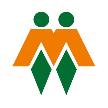AfriForum says TIMSS 2019 results prove necessity of mother-language education
9 December 2020
AfriForum regards the results of the Trends in International Mathematics and Science Study (TIMSS) of 2019 announced yesterday as a cause for grave concern. According to the study, the standard of students in Grades 5 and 9 in mathematics and science is still amongst the very worst in the world.
According to Alana Bailey, AfriForum’s Head of Cultural Affairs, there are many factors contributing to this failure to perform, but one of the main reasons is the lack of mother-language education in the country. “Especially in subjects such as science and mathematics, where pupils have to master abstract concepts, it is essential that they study in their mother language for as long as possible in order to understand what they are learning. In other subjects they can often get away with merely memorizing work, but in mathematics and science a lack of understanding becomes evident early on.”
Bailey mentions that Afrikaans single, double and parallel medium schools from across the country are currently turning to AfriForum for help, as provincial education authorities are relentlessly putting pressure on them to create space for English pupils, or to take in more English pupils respectively.
“It has been proven internationally that when teaching takes place in two languages within one institution, whether with parallel or dual-medium teaching, the dominant language eventually becomes the only language of instruction. This happens faster in dual-medium schools, as the constant repetition exhausts the learners and teachers. In parallel-medium schools, it may take longer, but the end result usually is a relapse into monolingual teaching in the dominant language, which in the case of South Africa is English.”
Bailey adds that the systematic phasing out of Afrikaans education is bad news for all South Africans. “According to the 2011 census, less than 10% of the country’s residents are mother-language speakers of English. When a language that is already strongly established in education, such as Afrikaans, succumbs to pressure from English, this means that the chance for the other nine official languages to develop further, decreases. Results such as those of TIMSS 2019 prove what the outcome is ‒ youths who are increasingly less employable upon the completion of their school careers, which in turn results in severe skills shortages and economic contraction.”
“AfriForum therefore encourages all parents to take a strong stand in favour of mother-language education and continues taking action to protect learners’ right to it,” Bailey concludes.
Issued by Chanté Kelder, Media Relations Officer, AfriForum, 9 December 2020

